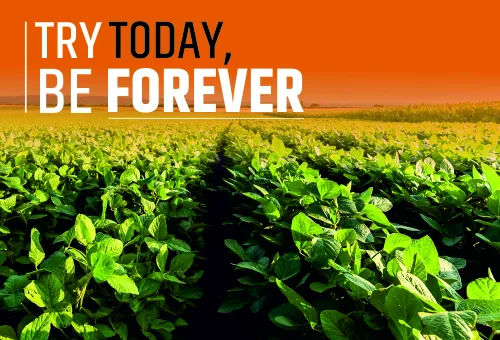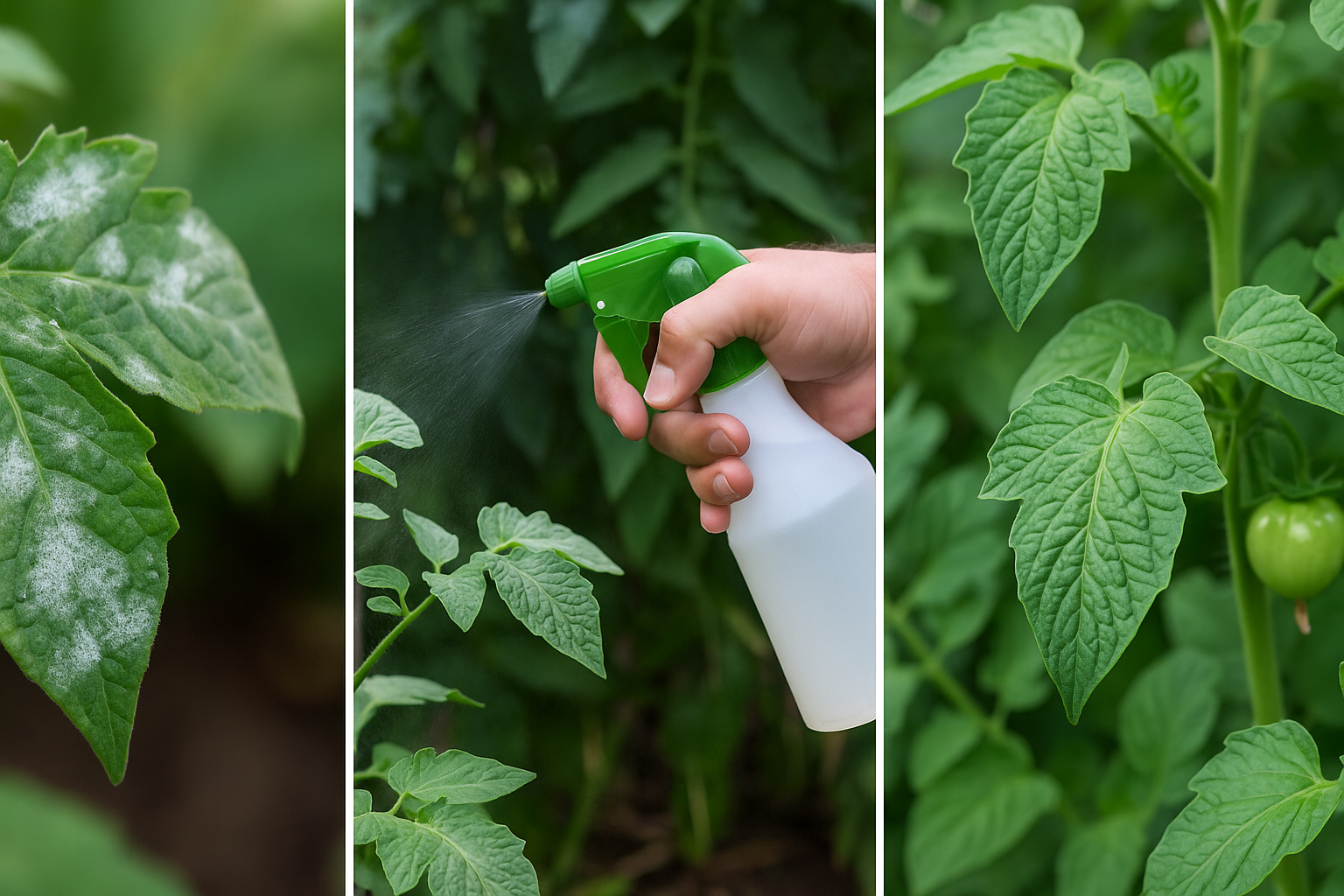In maintaining plants as healthy as possible and being productive, for farmers and gardeners, probably the largest setback is battling against fungal infections. Not only are these infections dangerous to crops but also lower plant yields drastically, impacting the total agricultural yield. This is where potassium bicarbonate fungicide works its magic.
Potassium bicarbonate fungicide is fast becoming a favorite among contemporary farmers due to the fact that it is both powerful and harmless when used in farming. While many chemical fungicides have the propensity to leave dangerous residues or contribute to long-term soil health devastation, potassium bicarbonate fungicide is one that acts softly on crops yet severely on fungi. It strikes the ideal balance of performance and eco-friendliness.
What is Potassium Bicarbonate Fungicide?
Potassium bicarbonate fungicide is a naturally sourced, inorganic substance that has extensive application in agriculture due to its fungicidal activity. It is particularly effective against many fungal diseases including powdery mildew, anthracnose, leaf spots, and downy mildew. It acts by causing an unfavorable condition for the development of fungi. It inhibits the cell wall of fungi, causing them to die quickly. Meanwhile, it raises the pH on the plant surface, rendering it harder for new spores of fungi to survive.Another good thing about potassium bicarbonate fungicide is that it can be employed both as a preventative and curative treatment. Whether you want to shield your crops from a potential breakout in the future or address an ongoing fungal infection, this fungicide provides reliable protection.
Advantages of Potassium Bicarbonate Fungicide in Farming
Let’s examine how potassium bicarbonate fungicide promotes plant health in an easy and concise manner:- Halts Fungi in Their Tracks: The primary role of potassium bicarbonate fungicide is to kill fungal diseases by acting directly on their cell walls. This halts the fungi from multiplying and spreading.
- Prevents Future Infections: Properly applied, potassium bicarbonate fungicide deposits a residue on the plant surface that deters future fungal infection. It increases the pH to concentrations fungi are not able to withstand.
- Safe for Plants: Potassium bicarbonate fungicide is not a burn- or toxin-causing fungicide on plants when applied at recommended rates, unlike most synthetic fungicides.
- No Toxic Residues: Because potassium bicarbonate fungicide is a byproduct of a naturally occurring substance, it does not leave any toxic residue on plants. This is particularly critical for food crops.
- Increases Plant Resistance: Plants in better health can more effectively resist not only fungi but also pests and other diseases. Potassium bicarbonate fungicide keeps overall plant health robust.
- Economical: Due to its effectiveness and low quantity required per application, potassium bicarbonate fungicide is economical for farmers to use.
- Mixes Well with Other Products: Potassium bicarbonate fungicide is often possible to mix with other sprays and fertilizers and easily incorporated into regular farm practice.
- Suitable for a Wide Range of Crops: From fruits to vegetables and even grains, potassium bicarbonate fungicide can be applied to a wide range of crop types.
- No Resistance Build-Up: Most chemical fungicides cause resistance in the long run. Fungi can develop and change. But potassium bicarbonate fungicide has a physical mode of action, which minimizes the chances of resistance.
- Rapid Action: It begins to work nearly instantly upon coming into contact with the fungal spores.
Practical Application: Potassium Bicarbonate Fungicide on Various Crops
Agriculturists in different regions have noticed the advantages of applying potassium bicarbonate fungicide on:- Tomatoes: Frequent use decreased cases of powdery mildew and resulted in better plant health and quality of the fruits.
- Chilies: Farmers experienced fewer infections and increased yield in treated plants.
- Grapes: Potassium bicarbonate fungicide was used early to prevent downy mildew outbreaks.
- Cucurbits: Leaves remained greener longer, and the rate of fungal infection decreased significantly.
- Wheat and Barley: While these are not the usual targets for this fungicide, farmers testing it noticed cleaner leaves and improved grain development.
Application Methods for Potassium Bicarbonate Fungicide
Learning how to use potassium bicarbonate fungicide is just as important as selecting the correct product. Here are some tips that are crucial:- Dilution: Use the recommended dilution ratio your supplier suggests. More is not better.
- Timing: Spray early morning or late afternoon to prevent too much evaporation and sunburn.
- Spraying Evenly: Spray leaves completely, including underside, where the fungi will often seek shelter.
- Reapplication: For optimal effectiveness, reapply potassium bicarbonate fungicide 7 to 14 days apart, particularly during humid weather.
- Rain Consideration: Don't apply immediately prior to rain as it will wash away the fungicide.
Why Farmers Prefer Potassium Bicarbonate Fungicide
Potassium bicarbonate fungicide has gained popularity in the agricultural sector due to its reliable performance. It does not only function as a short-term solution, but also makes a long-term contribution to the health of the plants. Farmers who have switched to potassium bicarbonate fungicide tend to enjoy improved yields, healthier crops, and reduced cases of repeated infections.It’s particularly useful in:
- High-Humidity Regions: Where fungal infections are most prevalent.
- Organic Systems: Where synthetic fungicides are not allowed.
- Integrated Pest Management (IPM): It integrates easily into IPM systems because it is non-toxic and environmentally friendly.
The Science Behind Potassium Bicarbonate Fungicide
Potassium bicarbonate fungicide works by a two-pronged mechanism:- Physical Disruption: It disrupts the osmotic status of fungal cells, leading them to collapse and die.
- Chemical Barrier: It changes the pH on plant surfaces, making it hard for fungi to get a foothold.
Sustainable Farming and Potassium Bicarbonate Fungicide
In the modern era, where sustainability is no longer just a buzz term, potassium bicarbonate fungicide becomes significant. Here's why:- Reduces Chemical Load: Less use of synthetic fungicides by farmers.
- Improves Soil Health: No harm to beneficial microbes or long-term soil health.
- Supports Residue-Free Produce: Clean food is being demanded more and more by consumers.
Comparison With Other Fungicides
Potassium bicarbonate fungicide is better than traditional fungicides:- Copper-Based Fungicides: Build up in the soil over time and kill microbial life.
- Sulfur-Based Fungicides: Are pungent and may cause ineffectiveness in highly humid environments.
- Synthetic Systemic Fungicides: Can create resistance and need precise safety time frames prior to harvest.
- Potassium bicarbonate fungicide gets around these issues and provides clean, efficient results.
Storage and Handling
- Potassium bicarbonate fungicide should be stored in a dry, cool place.
- Prevent contact with moisture to maintain product effectiveness.
- Protective gloves and mask should be used when preparing spray solution.
Tips for First-Time Users
- Begin with a small plot to see plant response.
- Adhere to recommended dosage.
- Clean water should be used to prevent residue accumulation.
- Watch plant response and adjust accordingly.
Bulk Agrochem Recommendation
For quality, agriculturally-qualified potassium bicarbonate fungicide, Bulk Agrochem presents the reliable alternative. Its specially manufactured product for farming is dedicated to purity, quality, and ready use. Empowered with professionalism in industry expertise and eco-sustainability credentials, Bulk Agrochem's potassium bicarbonate fungicide will assure you confident planting of health-enriching crops.
FAQs
1. What crops can I use potassium bicarbonate fungicide on?
You can use it on vegetables, fruits, grains, pulses, and many other field crops.
2. Is potassium bicarbonate fungicide safe for food crops?
Yes, it leaves no harmful residues and is considered safe for use on food crops.
3. How often should I apply potassium bicarbonate fungicide?
Every 7 to 14 days, depending on weather conditions and crop type.
4. Does it cure existing fungal infections?
Yes, it has both preventive and curative properties.
5. Can it be used in organic farming?
Absolutely. It is allowed in many organic farming systems due to its natural origin.
6. Will potassium bicarbonate fungicide harm beneficial insects?
No, it is non-toxic to bees and other beneficial insects.
7. Can I mix it with other agricultural chemicals?
In most cases, yes. Always check compatibility first.
8. Is it effective against powdery mildew?
Yes, it is especially known for controlling powdery mildew effectively.
9. How long does it take to see results?
It starts acting immediately, with visible results in 1–2 days.
10. Where can I buy potassium bicarbonate fungicide?
You can get reliable and agriculture-grade products from Bulk Agrochem.






